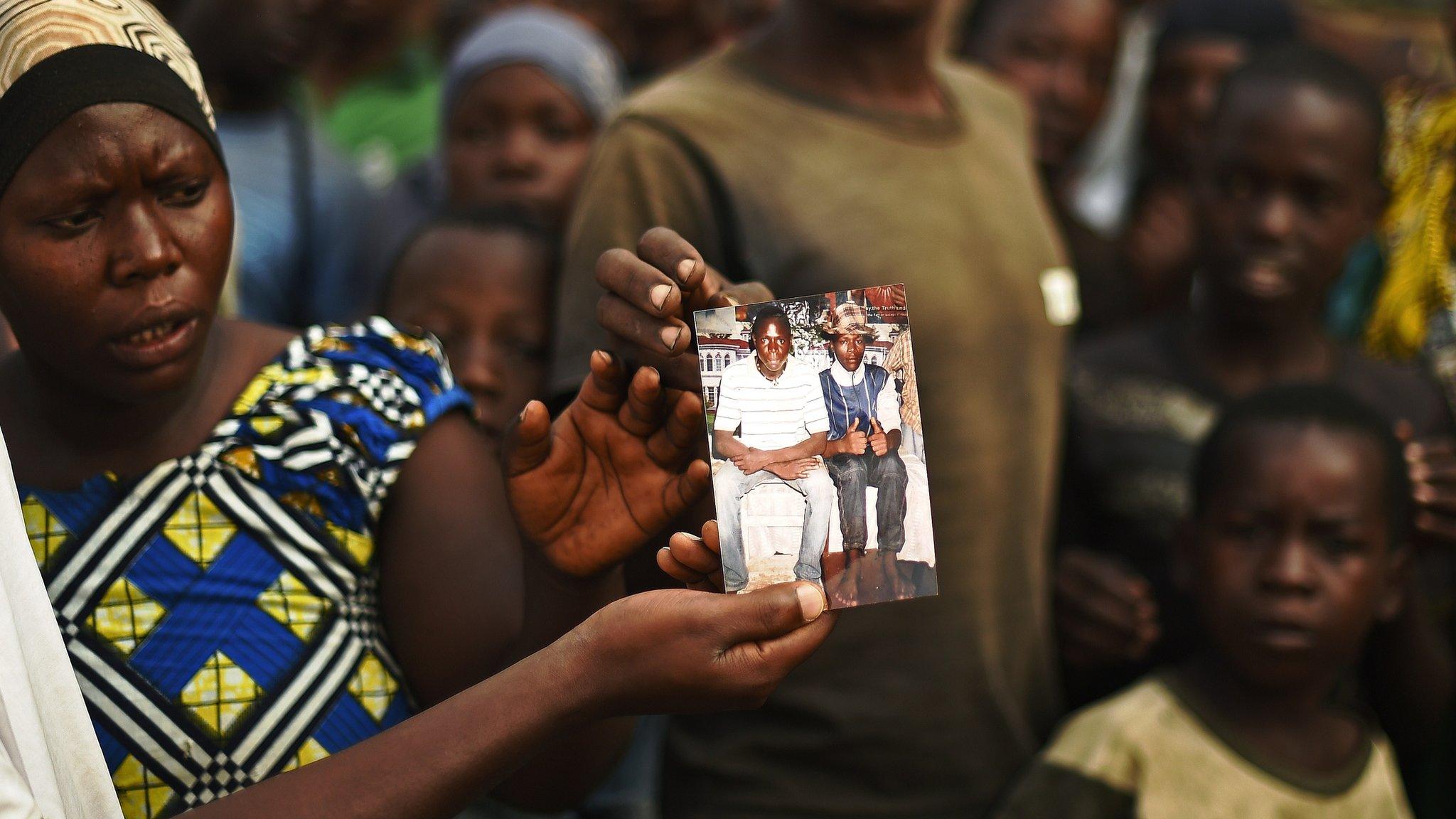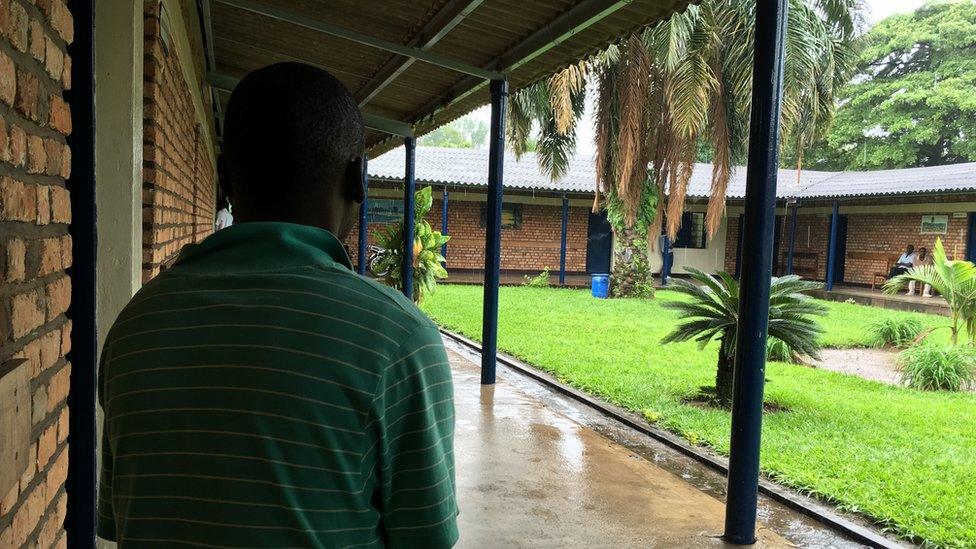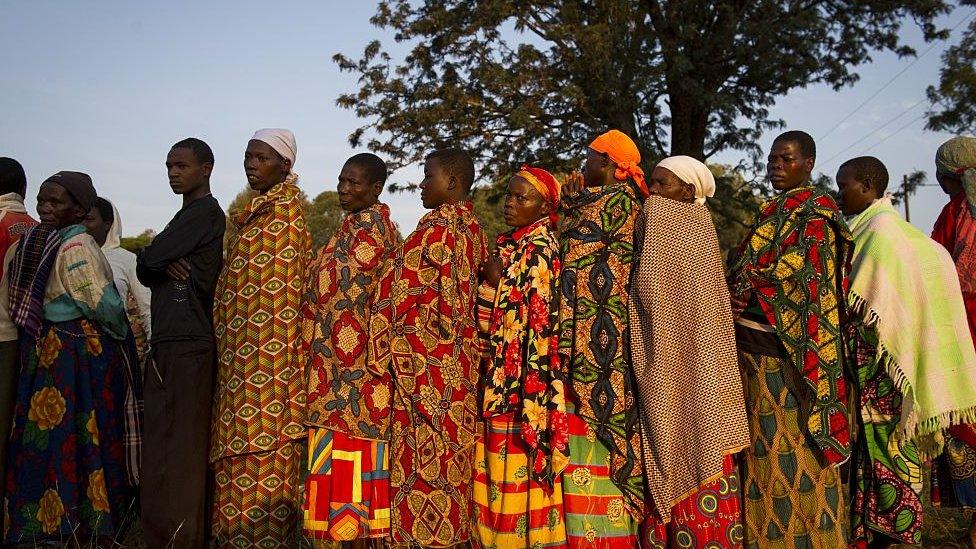Burundi security troops gang-raped women, UN says
- Published
The BBC's Maud Jullien is shown 'mass grave' after the attacks
The United Nations says it has evidence that Burundi's security forces gang-raped women while searching the homes of suspected opposition leaders.
Security forces separated the women and raped them, the UN said, adding that it had documented 13 cases.
Forces also kidnapped, tortured and killed dozens of young men, it said.
Meanwhile, a court has sentenced four generals to life in jail for their part in trying to overthrow President Pierre Nkurunziza in May last year.
Nine other officers were jailed for 30 years and eight soldiers, including drivers and body guards, to five years for their role in the unrest sparked by Mr Nkurunziza's announcement that he would run for a third term.
He secured a third term in disputed elections in July.

More on Burundi

The abuses documented by the UN took place immediately after rebel attacks in December against three military camps in the country's capital, Bujumbura, the UN's human rights chief, Zeid Ra'ad al Hussein, said in a statement.
The UN believes the army is taking revenge for the attacks.
Mr Hussein also called for an investigation into reports that nine mass graves were found in and around Bujumbura, warning about the "increasing ethnic dimension of the crisis".
Some witnesses say that violence from security forces was directed at the Tutsi minority.
Burundi has been plagued by tension between Tutsis and Hutus since independence in 1962.
However, analysts say ethnicity is not at the heart of the conflict.
The failed coup leader, ex-General Godefroid Niyombare, who is on the run, is a Hutu.
His allies sentenced to life in jail by the Supreme Court were a mix of ethnicities.
Gen Cyrille Ndayirukiye, the former defence minister, and Hermenegilde Nimenya, a police general, are Tutsis and army generals Zenon Ndabaneze and Juvenal Niyungeko are Hutu.
- Published3 November 2015

- Published2 December 2015

- Published4 November 2022
